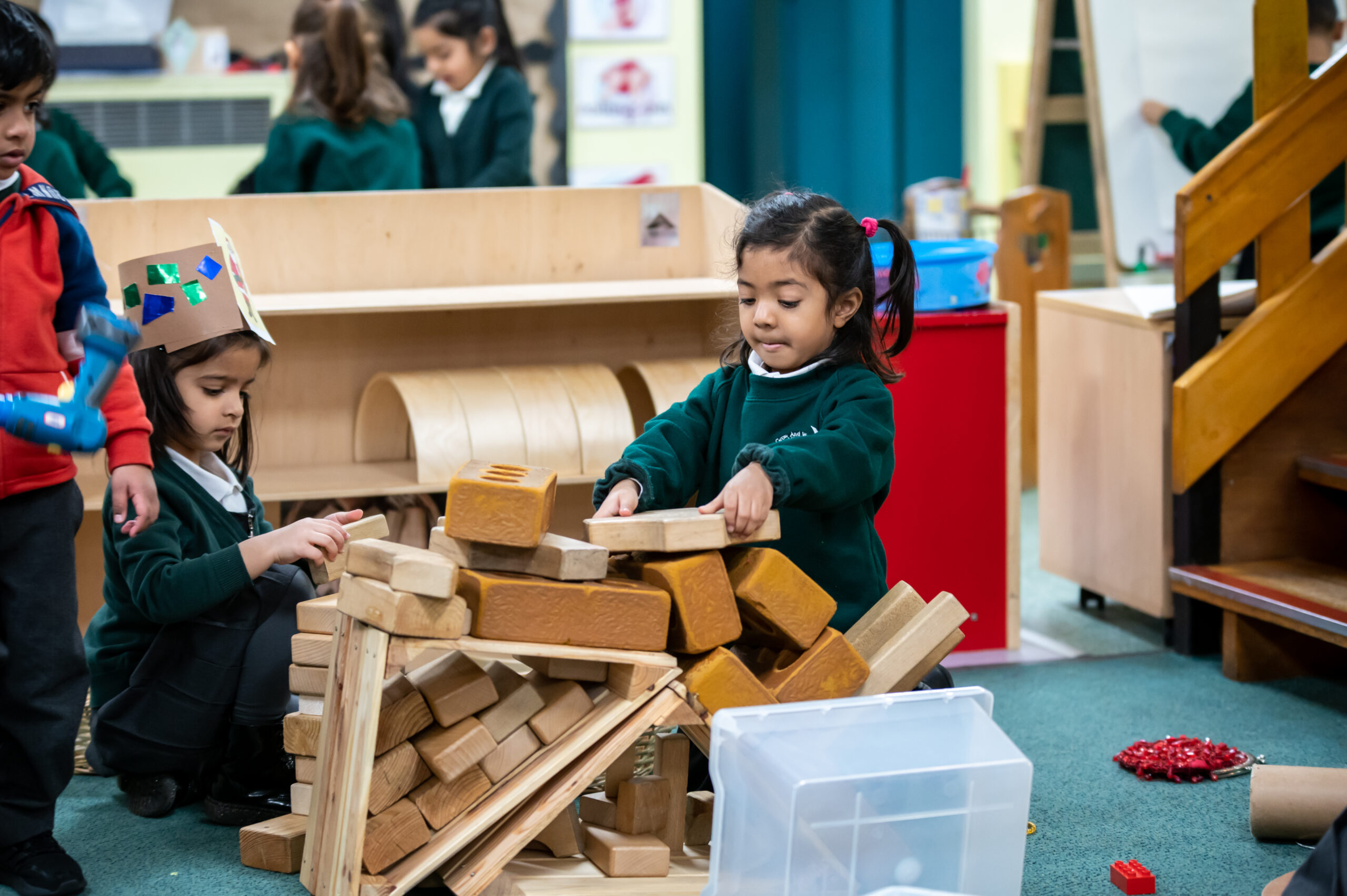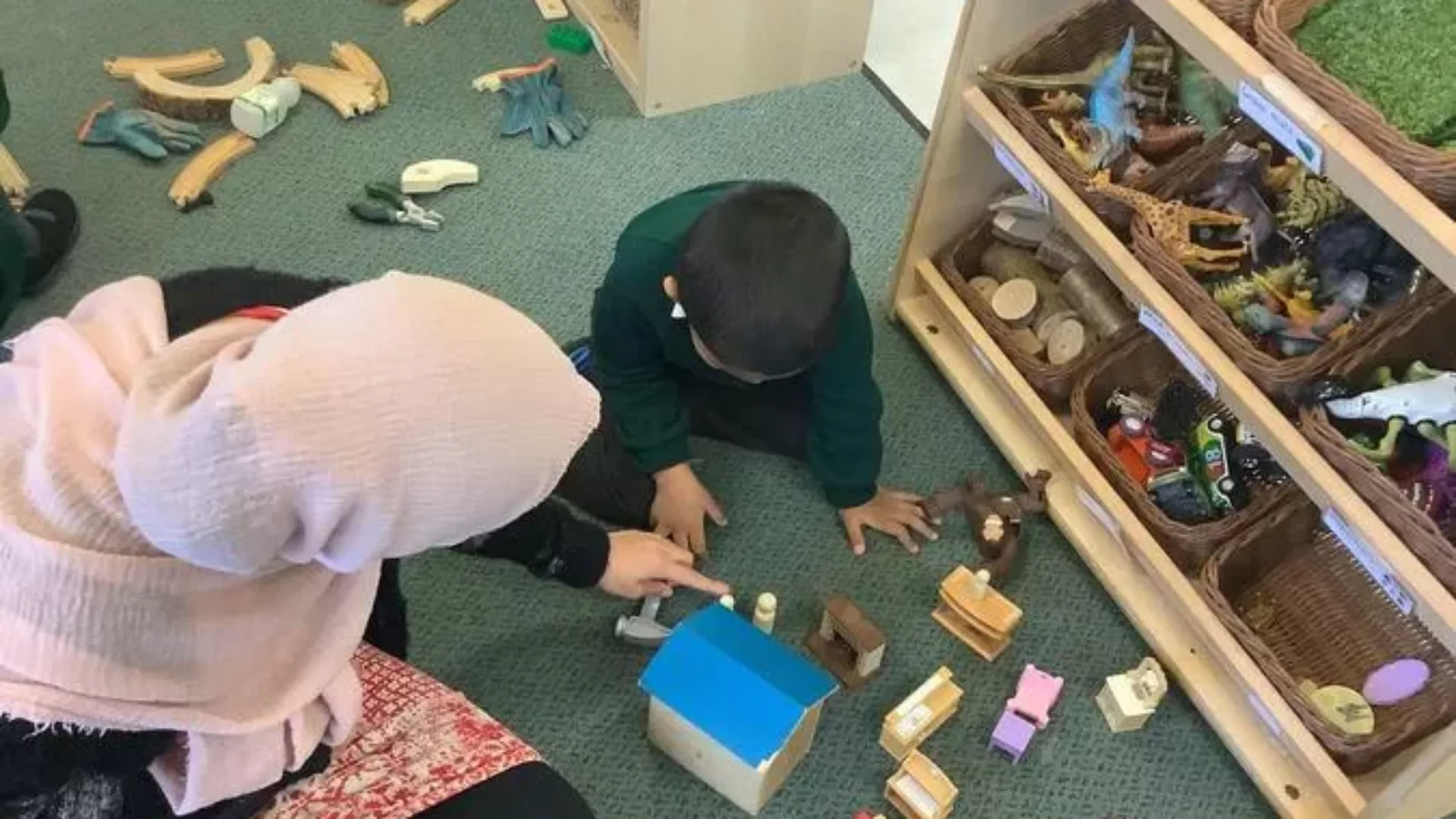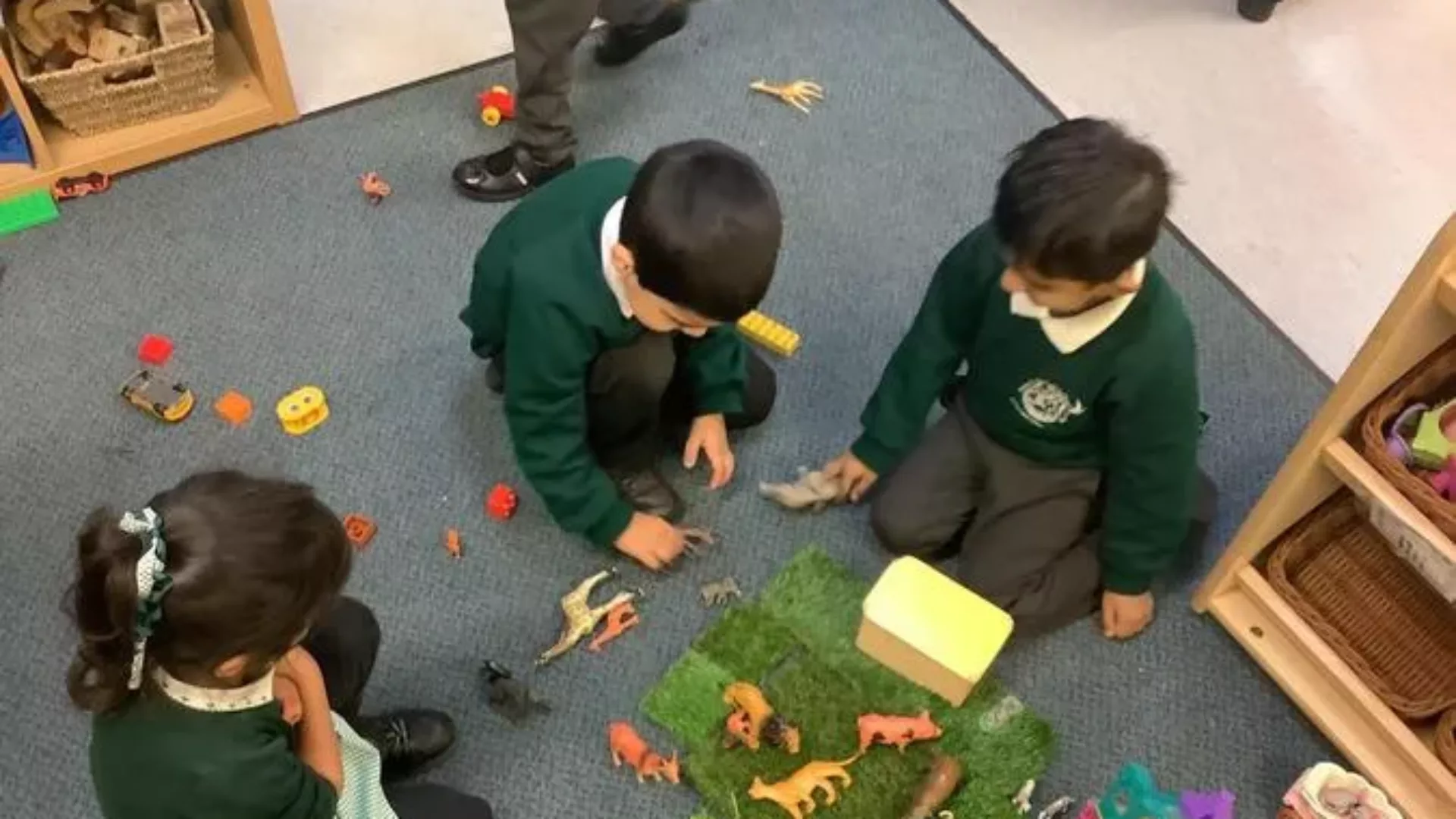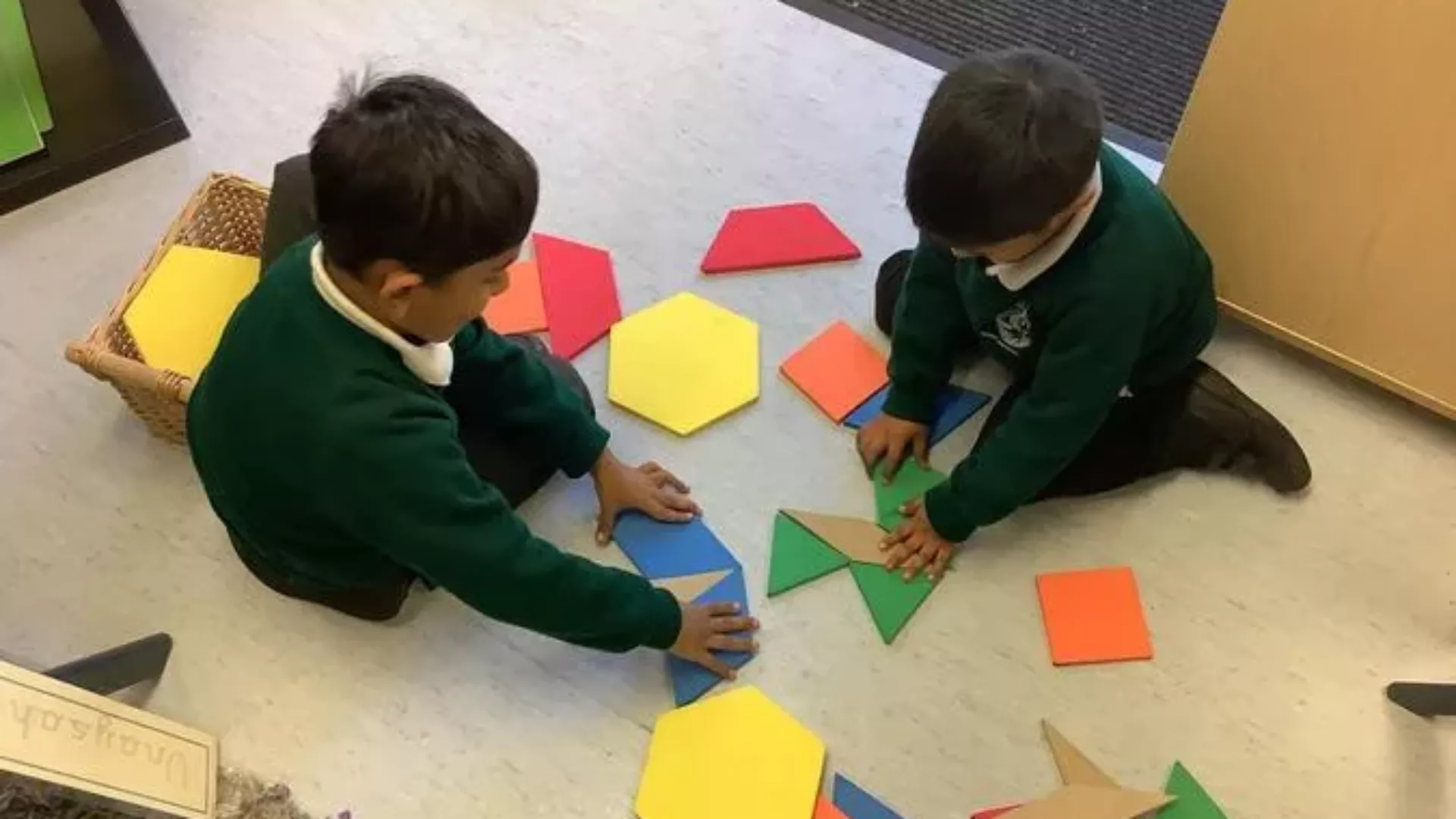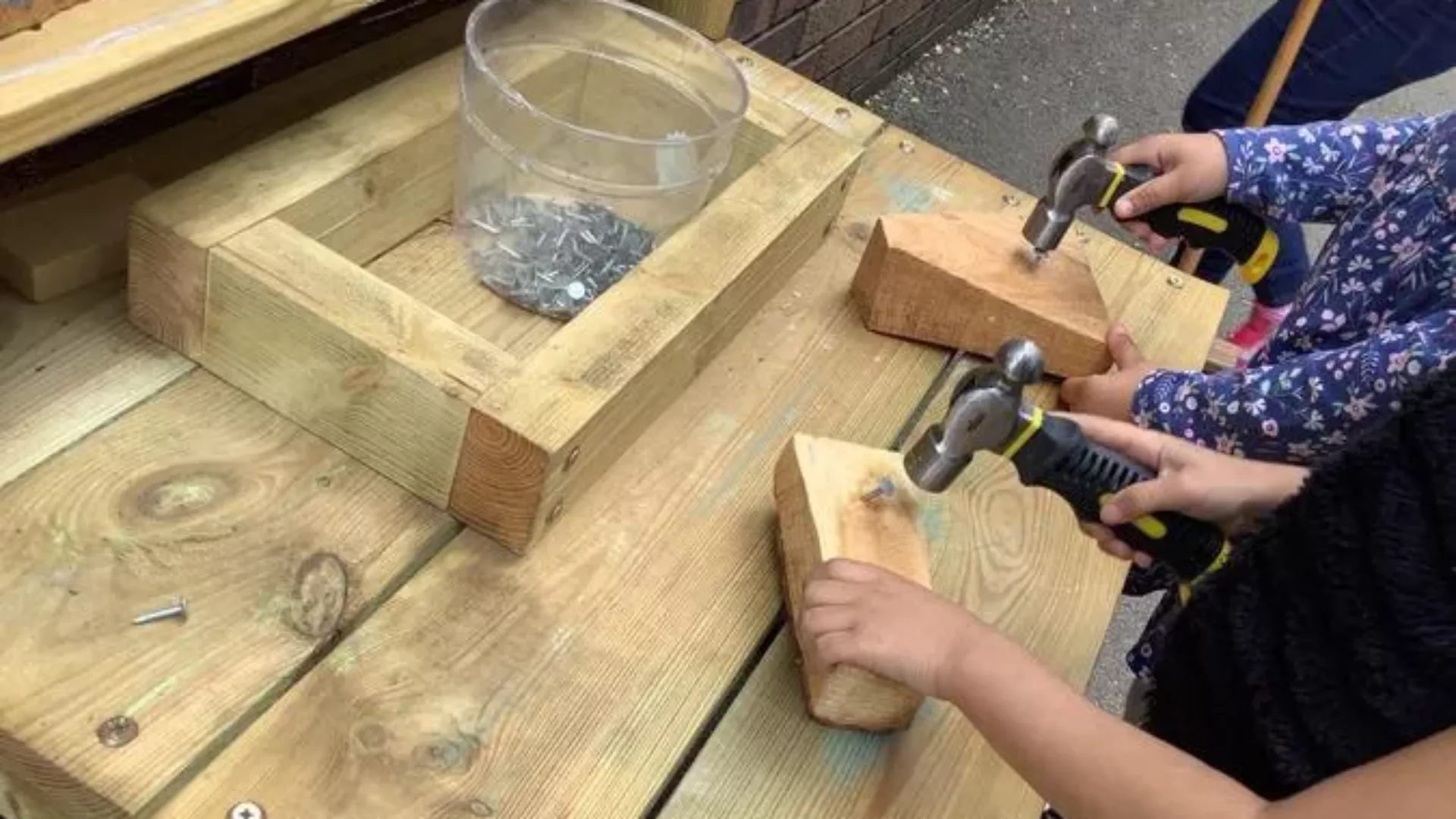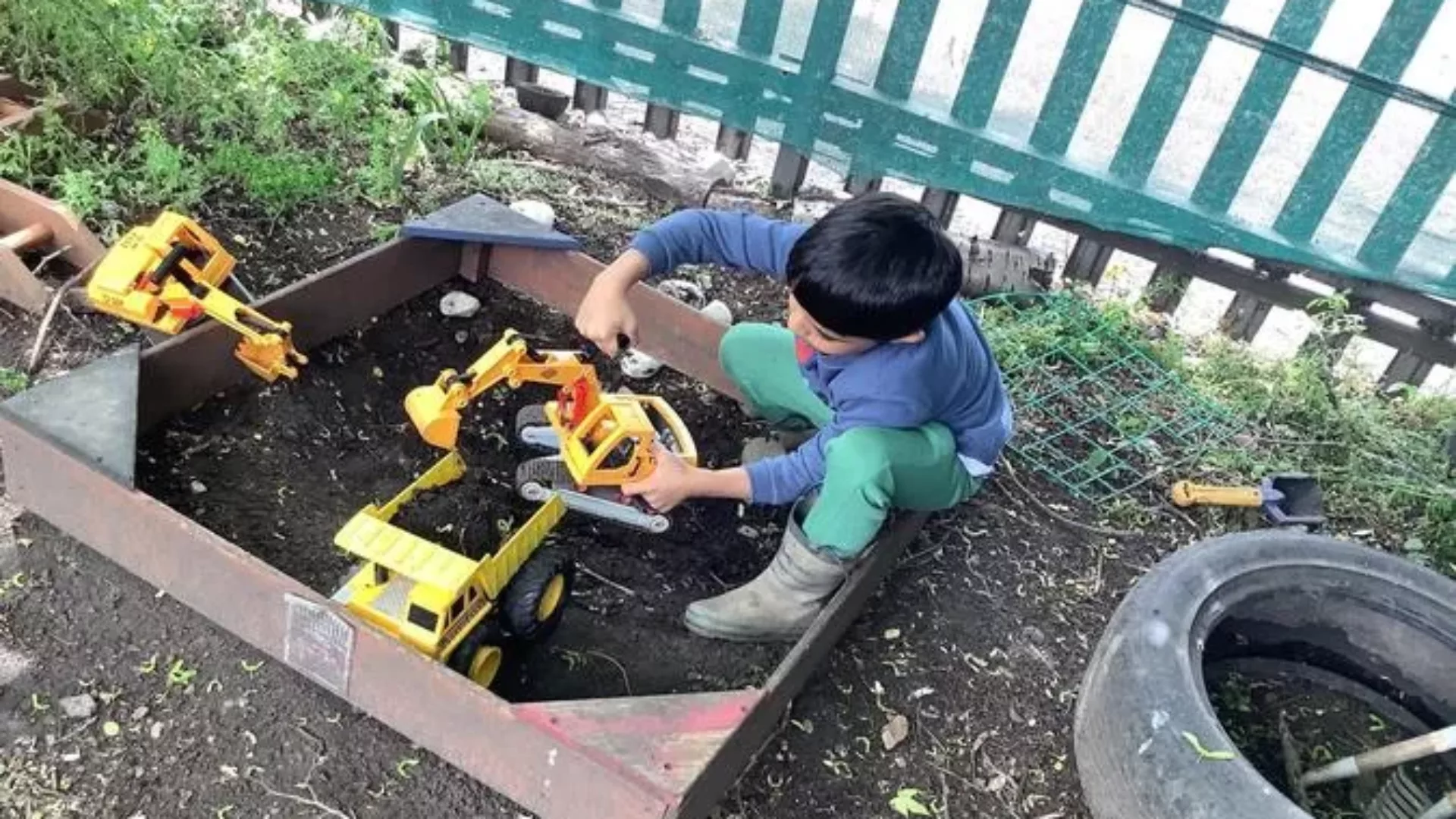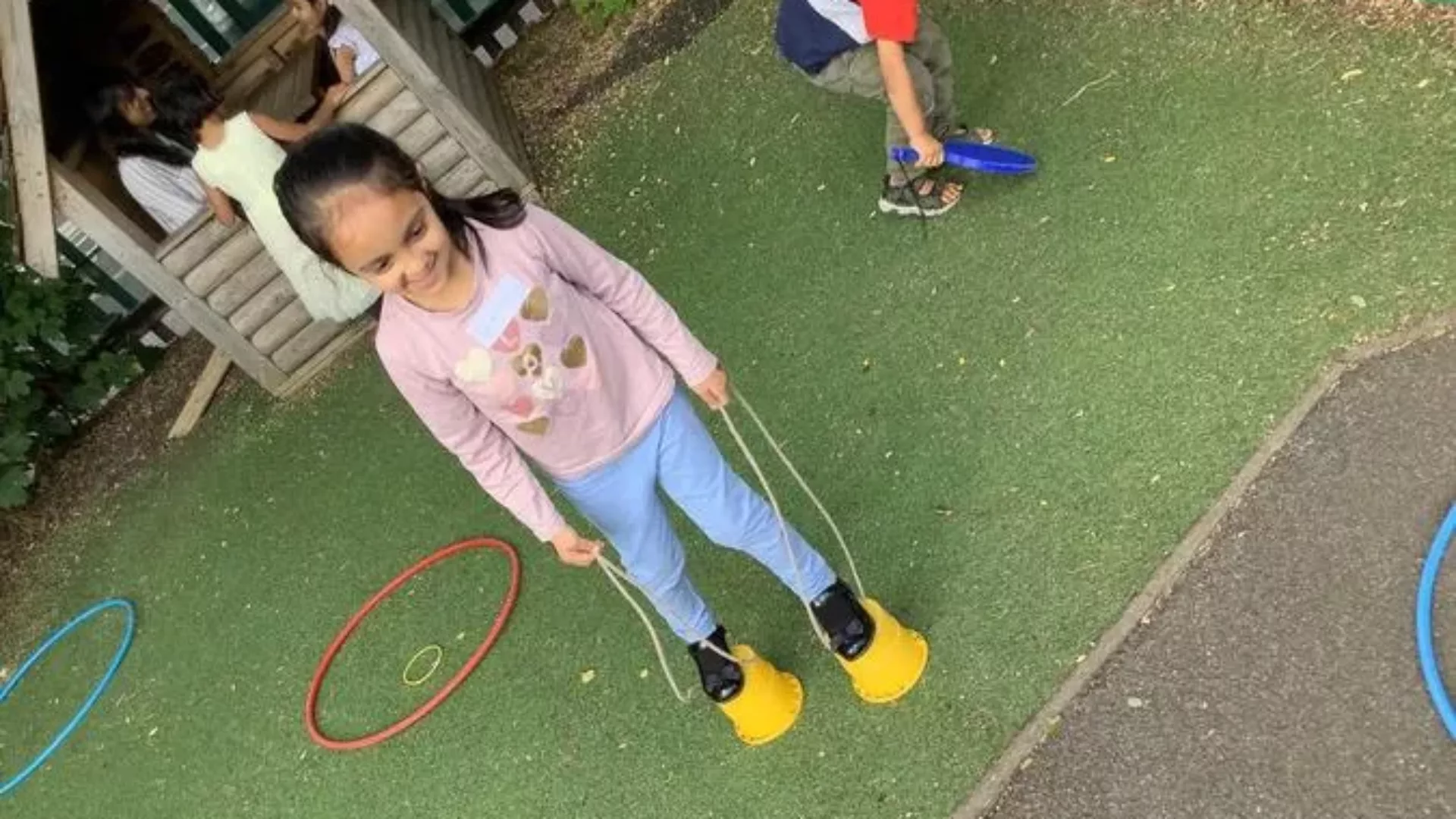Welcome to Early Years
Our Early Years consists of our wonderful nursery and 3 reception classes. Together, our team works tirelessly, to ensure the children of Green Lane get the very best start in their educational journey. In our Early Years, children learn through play and hands on experiences as we foster a love of learning and develop the children’s natural curiosity.
- Intent
- Implementation
- Impact
Our EYFS takes into consideration each child’s starting points and needs as they begin their learning journey at Green Lane. We place great value on the development of our children as individuals and providing them with the skills, knowledge and understanding they need to prepare them for the challenges in Key Stage One and beyond. Our aim in the EYFS is to build strong foundations rooted in academic success as well as strengthening moral and spiritual development, so that our children can be successful and go on to be active and resilient citizens within an ever-changing world. Ultimately, we want our children to have what it takes to fulfil their dreams.
Our personalised, flexible curriculum is the cultural capital we know our children need so that they can gain the knowledge, skills and understanding they require for success. They can only do this if we embed the right habits for learning through the Characteristics of Effective Teaching and Learning – Play and Exploration, Active Learning and Creative and Critical Thinking.
Through our curriculum provision, it is our hope, that these character traits positively influence their engagement with all areas of the curriculum however we recognise the importance of the three prime areas which underpin our children’s capacity to learn, form connections with others and thrive. Positive partnerships between both home and school and the nurturing relationships our children are immersed within at Green Lane ensure that children feel safe and valued.
We develop these traits through planning an enabling environment in which children can learn and develop within an ethos of openness, excitement and challenge. Our skilful practitioners are experts in Early Years pedagogy who effectively facilitate so that children begin to link their learning to their play and exploration. We carefully balance this with the need for targeted and relevant direct teaching opportunities. This balance is the core to our approach; through expert planning and implementing teaching and learning strategies. We will provide our children with natural and calming surroundings, and the use of real and meaningful resources in our commitment to their holistic development. Our unique children, their varying needs and interests, lead our thinking and create our provision.
Oracy is the golden thread that runs throughout our school. We ensure children are immersed in a language rich environment, where vocabulary development is a priority and children learn to connect with others through language.
Across our EYFS, we follow the Early Years Statutory Framework. This Framework specifies the requirement for learning and development in the Early Years and provides prime and specific areas of learning we must cover in our curriculum.
Our school centred curriculum has been designed to ensure it is broad and balanced, taking on the key areas of learning as outlined in Development Matters2021 whilst also considering the children’s Cultural Capital and building on the learning we know the children need in order to access the curriculum fully. Careful consideration has been taken in the planning of our curriculum to ensure prior learning is built upon, extended and enhanced whilst also considering a logical progression from Nursery into Reception, in preparation for further learning in Key Stage One. It is accessible for every child and encompasses the three prime areas and four specific areas of learning through varied, fun and exciting learning opportunities.
We have ensured a careful balance between adult directed teaching sessions and child-initiated play, with skilled practitioners who support and extend the children’s learning. Direct teaching sessions are succinct and effective in delivering the teaching points required, with weekly follow up activities in reading, writing and maths. Interventions are used to support children in their learning and to fill gaps quickly and effectively.
The value of a well-resourced provision across our Early Years setting, provides the solid base for moving the children’s learning forwards through child-led play. We strongly believe that an effective continuous provision, allows for the children to explore and be challenged in a safe and carefully considered environment. Regular tweaks and enhancements are made to the provision to reflect the needs and next steps of the children, as well as reflecting their interests for high engagement. We place a high value on quality interactions between practitioners and children, as we strive to use open and natural verbal interactions to allow for strong relationships to be built. Timetabling has been carefully considered to allow for extended periods of time for the children to spend in continuous provision, in order to maximise learning and the potential for children to be immersed within their play.
Termly assessment checkpoints are used to track children’s learning, focusing on the children who may not be on track to achieve the early learning goals at the end of the Reception year. These assessments inform a termly Gap and Strength Analysis, ensuring all practitioners are always aware of the gaps in learning. These are used in inform planning and considered when practitioners support children in continuous provision as we strive to close gaps in learning.
Family links are built through developing relationships with the families and the use of Seesaw to record and celebrate the children’s learning and achievements. Families are also able to share pictures and comments with practitioners to allow for families to share in their children’s learning journeys too. This allows us to develop a holistic view of each child.
We strive to ensure that our children’s progression across the EYFS curriculum is good from their varied starting points. Through the delivery of a well-planned, child-led and challenging curriculum we aim that the pupils will leave the Early Years Foundation Stage as independent learners, with transferrable skills needed to start Key Stage One. This will be measured at the end of Reception as to whether the pupils have achieved a Good Level of Development.
We aim that our pupils will leave our Foundation stage ready for the next stage in their education and ready for year 1. Oracy underpins all that we do and we strive to enable children to be confident communicators. Our aim is that children are self-assured and resilient learners, who have a wealth of tools in their toolbox to read and write using their phonetic skills, work well with numbers to 10 being able to identify patterns and verbalise their knowledge of numerical composition, have learnt about the natural world around them and show creativity and imagination, plus much more.
We measure progress and children’s learning across the year through formative and summative assessment which is based on teachers having a deep and detailed knowledge of all children in their class. Photographs, videos and observations recorded on Seesaw, work completed in the child’s literacy book and practitioner knowledge from interacting and observing children support this. The Green Lane assessment checkpoints are used at regular intervals through the year in all areas of learning, to ensure practitioners have a well-matched pedagogical knowledge matched to the age of the child. This is tracked using Target Tracker to ensure rates of progress are at least good for all children, including vulnerable groups such as those with SEND, disadvantaged or summer born children. Pupil progress meetings allow for Senior Leaders to gain a deeper understanding and support teachers in providing the correct level of support for all children. We partake in city wide moderation activities as well as moderation within our Multi Academy Trust (Attenborough Learning Trust).
The impact of our curriculum will also be measured by how effectively it helps our pupils develop into well rounded individuals who embody our values and carry with them the knowledge, skills and attitudes which will make them lifelong learners and valuable future citizens.
Teaching Overviews
Curriculum

Our curriculum has been carefully planned to be broad and balanced ensuring children have the opportunities needed to help them develop the skills needed to learn to read, write and work confidently with numbers. Children learn about what makes them unique and special, how to communicate with others, develop strength and coordination as well as learning about our wonderful world and the people in it, and how to express themselves creatively. Our curriculum has been carefully sequenced to allow children to make the connections with what they know already, to build on this knowledge, giving them the essential knowledge needed to build on as they move from nursery into reception and then transition into year 1.
There are seven areas of learning that shape our curriculum and the experiences we offer our children.
The 3 prime areas are:
- Communication and Language
- Physical Development
- Personal, social and emotional development
Children are also supported within the 4 specific areas of:
- Literacy
- Mathematics
- Understanding the World
- Expressive Arts and Design
Our staff understand the importance of all children having a firm foundation in the prime areas so they can use these essential skills to help them access the special areas of learning.
Play based approach to learning

“Children learn as they play. More importantly, in play, children learn how to learn.” O. Fred Donaldson
Children are naturally motivated to play. At Green Lane Infant School, we value play and ensure children have the opportunity throughout their day to engage in extended play-based activities both indoors and outdoors. Our Early Years classrooms and outdoor areas, are carefully planned and well-resourced environments, that cater for the various needs of our young child. When exploring in provision we value each child’s play and provide opportunities for children to actively and imaginatively engage with people, objects and the environment Our experienced and knowledgeable staff are there to support and extend children’s learning through their interactions.
Characteristics of Effective Learning

Children learn in different ways and here at Green Lane Infant School, we will support children in whichever stage they are in their development. The characteristics of effective learning outline the different ways in which children can engage in their own learning and development.
Playing & Exploring
Children are encouraged to play with what they know and to develop the confidence to “have a go.”
We are committed to offering children an experience that will foster a love of learning within a safe and stimulating environment.
We build secure and trusting relationships which allow our children to flourish.
Active Learning
The indoor and outdoor environment is carefully resourced so that children become motivated to be independent learners.
Children are supported to become more resilient: to keep on trying and achieve what they set out to do.
Children become more engaged; showing high levels of energy and fascination.
creating & thinking critically
As children engage in a broad range of activities in Early Years, they begin to actively think about the meaning of what they are doing.
Children will begin to generate new ideas, make links between experiences and learning and become problem solver.
Assessment

During the first few weeks in Nursery or Reception, we will find out what the children already know and can do and use this information to help us support each child at their point in learning. Part of this assessment process includes conducting the statutory Reception Baseline Assessment.
Assessment forms an important part of our assess, plan, do, review cycle. There are regular intervals through the year where staff use our extensive checkpoint assessments to assess each child against statements which outline what a child who is ‘on track’ might be doing at key points through the year. If a child has a gap in their learning, staff use their knowledge of child development to pinpoint how we can support this child and work with them to close these gaps in learning quickly.
Seesaw is used as a way of sharing key learning moments through photographs and videos with families. We want parents and carers to be involved fully to ensure we can gain a holistic view of each child, therefore, we ask parents/ carers to upload photos, videos and comments to their child’s journal. Staff will post home learning activities each week which will allow parents to work with their child at home to support them in their learning.
What do our parents say?

Nursery parent
Thanks for a lovely introduction to education for my child. We really appreciated being invited into the nursery for events such as making festival bunting, the coronation picnic and most of all going on trip with the children. It really helped us understand how our child is around her peers, different ways she is taught and what she learns. We are always delighted when she tells us about new words she has learnt. Her vocabulary and social skills have developed greatly this year. Thank you.
Reception parent
I would like to thank my child’s teacher and the early years team who very quickly learned to understand my child and her uniqueness and worked with her individuality. My child has thrived this year, she has gone from not recognising any letters or numbers to reading confidently and doing basic Maths enthusiastically. I am so proud of how far my child has come this year with the support of her teachers.
